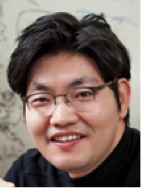Date
Cost
Free and open to the public
Location
Research Pavilion, Room 475 (NanoScience Technology Center)
Description
Abstract:
Lithium ion batteries have served as major power options for the portable electronic devices for the past decades and are now expanding the boundary to new large scale applications such as electric vehicles and large scale energy storage systems (ESSs). As the demand for large scale batteries gets higher, the request for low-cost and sustainable chemistry for rechargeable battery gets more intensified. In this talk, I will introduce two approaches toward the low-cost and environmentally friendly energy storage systems. In the first part of the talk, the battery chemistry mimicking biologically occurring redox centers will be introduced. A molecular simplification strategy combined with nano architecture is demonstrated to tailor the redox unit of pteridine derivatives in practical rechargeable batteries, which are essential components of ubiquitous electron transfer proteins in nature. In the second part, rechargeable battery chemistry based on earth abundant elements such as sodium and iron will be discussed. First principles calculations guide to the design of new electrode for such chemistry.
Biography:
Kisuk Kang is a professor of Materials Science and Engineering at Seoul National University (SNU) where he received his B.S.; his Ph.D. at Massachusetts Institute of Technology was on the design of electrode materials for lithium ion batteries (LIB). Before he joined to SNU, he was a professor at Korea Advanced Institute of Science and Technology (KAIST).
Presenter

Kisuk Kang, Ph.D.
Department of Materials Science and EngineeringSeoul National University (SNU) Republic of Korea
More information
Light refreshments will be served
Contact
Ushaben Lal NanoScience Technology Center 407-882-0032 usha@ucf.edu